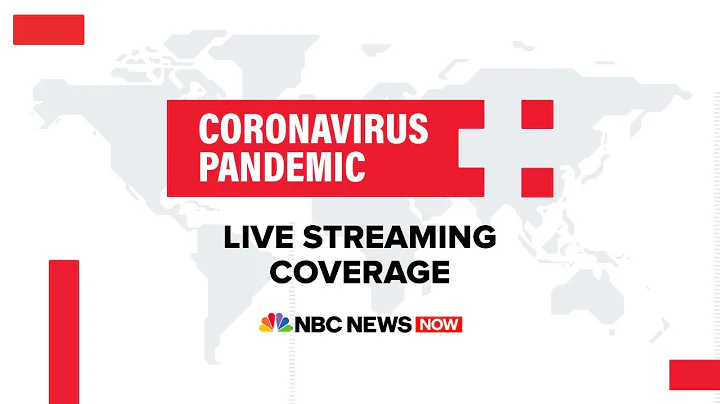When I was a child, I often heard my parents say:
"It's time to get vaccinated.
If you get vaccinated, you will get less sick."
In fact,
"Getting vaccinated" means getting vaccinated.
This is a thing
is a very important thing in the growth process of every child.
There are many common diseases
such as measles, rubella, mumps, hand, foot and mouth, poliomyelitis, etc.
are highly contagious,
infection may leave serious sequelae or even death
Therefore, Vaccination with the corresponding vaccines
is the most economical and effective measure to control and eliminate infectious diseases

After birth
there are antibodies from the mother
and some antibodies can enter the baby's body through breastfeeding
1 thereby improving one’s own resistance
But after 6 months
the immunity acquired by the mother in the baby's body
will gradually weaken until it disappears
thus losing the protection
Infants and young children are very susceptible to bacteria and viruses
Therefore
Vaccinate infants and young children on time in a planned manner Vaccine
is also an important means to improve children's ability to resist infectious diseases
1. What is a vaccine
Vaccine is made from pathogenic microorganisms (such as bacteria, viruses, etc.) and their metabolites, and is used to prevent infectious diseases through artificial intervention. Biological Products. Vaccines can be divided into live attenuated vaccine , inactivated vaccine , antitoxin, subunit vaccine (containing peptide vaccine), vector vaccine, nucleic acid vaccine , etc.
2. What is the mechanism of vaccine action?
For people with normal immunity, vaccination is equivalent to injecting pathogens. This pathogen is not only non-pathogenic; moreover, it can stimulate the body to produce immune response . When the real pathogen comes, it can kill the pathogen and prevent infection.
1. Measles
Measles is one of the most common acute respiratory infectious diseases in children. It is a highly contagious disease that can be fatal. If you are not immune to measles, 90% of your children will be infected after close contact with a contagious measles patient. People can become infected. After being infected with measles virus , symptoms such as fever, upper respiratory tract inflammation, conjunctivitis, red maculopapular rash on the skin, and measles mucosal spots on the buccal mucosa often occur. Complicated respiratory diseases such as otitis media , Laryngotracheitis, pneumonia, etc., may also cause severe complications such as measles encephalitis, subacute sclerosing panencephalitis, etc., and there are currently no specific antiviral treatments, so the most effective way to prevent measles infection is The measure is to protect susceptible people through vaccination with live attenuated measles vaccine. After several years of research, it has been confirmed that the live attenuated measles vaccine has good safety, effectiveness and stability, and has a good protective effect on vaccinated infants, children and adults.
2. Mumps
Mumps is also one of the common infectious diseases that children and adolescents are susceptible to. It is a respiratory infectious disease caused by mumps virus infection and can be spread through coughing, sneezing, etc.; It is characterized by non-purulent swelling of parotid gland , and mumps virus can invade various glandular tissues or nervous system and almost all organs such as liver, kidney, heart and joints, sometimes causing meningoencephalitis, orchitis, Ovaritis , pancreatitis and other complications. Vaccination with mumps vaccine can improve the immunity of susceptible people, reduce the incidence of mumps, and effectively prevent viral infections in infants and children.
3. Rubella
Rubella is an acute respiratory infectious disease caused by rubella virus . Children are the main susceptible group. After being infected with rubella virus, symptoms include fever, sore throat, cough, swelling and pain of lymph nodes behind the ears and occipital area, and then a light red maculopapular rash first appears on the face and sides of the ears, and quickly spreads throughout the body, but the course of the disease is short and complications are rare; Symptoms after infection in adults are severe. In addition to rash, they are also accompanied by joint pain, thrombocytopenia, , post-rash encephalitis, , etc. If pregnant women are infected with the rubella virus during pregnancy, it can lead to fetal malformation or even death. Therefore, for children with negative rubella antibodies and women of childbearing age, vaccination with live attenuated rubella vaccine is an effective measure to prevent rubella. Currently, our country mainly inoculates infants and children with the measles, mumps, and rubella triple vaccine , which is used to prevent measles, mumps, and rubella, three common acute respiratory infectious diseases in children.
IV. Chickenpox
Chickenpox is an acute infectious disease caused by the varicella-zoster virus. It is highly contagious and more common in children. The symptoms in adults are more severe than in children. Patients may have symptoms such as chills and low fever in the early stages of the disease, and then a rash will appear after 1-2 days. Chickenpox rashes are mostly "polymorphic rashes" with a centripetal distribution, mainly located on the trunk, followed by the head and face, and the limbs are relatively small. few. Chickenpox patients are the only source of infection. They are contagious from 1 to 2 days before the onset of the disease until the rash is dry and crusted. It can be transmitted by contact or droplet inhalation. The incidence rate in susceptible children can reach more than 95%. April-July and November-January are the peak seasons of seasonal incidence in our province. The disease is a self-limiting disease, and lifelong immunity can be obtained after the disease.
The chickenpox vaccine is the most effective way to prevent the occurrence of chickenpox. The main vaccination target is chickenpox-susceptible people aged 12 months and above. Generally, vaccination can play a protective role in about 2 weeks. Henan Province issued guidelines for the use of chickenpox vaccine in 2015, recommending that children aged 1-2 years old receive the first dose, and children aged 4 years and older receive the second dose.
Before taking the vaccine, you should pay attention to these
Before taking your child to be vaccinated, you should ensure that the child eats and rests to avoid fasting and fatigue; give the child a bath and put on clean, loose clothes to prevent bacterial infection at the vaccination site, and it is also convenient for the doctor Get vaccinated; bring the vaccination certificate; pay attention to whether the child has recently had fever, diarrhea, convulsions and other symptoms, or has heart, liver, kidney and other diseases, or if the child has had high fever, convulsions, severe allergies and other reactions after the previous vaccination , inform your doctor promptly before vaccination.
After vaccination, please pay attention to the following:
After vaccination, you must observe the vaccination site for 30 minutes. During this period, there are no abnormal reactions before leaving; the vaccination site must be kept clean and dry within 24 hours to avoid infection; Drink water, eat a light diet, and avoid foods that may cause allergies; at the same time, pay attention to rest and avoid staying up late and strenuous exercise.
Because personal physiques are different, there may be a certain degree of adverse reactions after vaccination, which are generally mild, such as local redness, swelling, itching, pain, fever, nausea, loss of appetite, and poor mental status. Wait for adverse reactions. If adverse reactions occur after vaccination and the symptoms are mild, they will generally disappear within 1-3 days; if severe reactions such as high fever occur, you must seek medical treatment in time without delay.
In addition to vaccinating children on time in a planned manner
Maintain indoor air circulation
Try to avoid taking children to crowded places
Wear masks when going out
Educate children to develop good hygiene habits
Avoid touching the mouth and eyes with unclean hands , nose
Wash your hands carefully and scientifically after going out
Balanced diet, regular life, and ensuring sleep
Add or remove clothes for children in time according to weather conditions
all help to improve immunity
Let children grow up healthily and happily!
Source: Henan Disease Control and Prevention Copyright belongs to the original author. If there is any infringement, please contact us to delete
















![COVID-19 and the 2020 Elections [COVID-19 & the Law] - DayDayNews](https://i.ytimg.com/vi/mI5yhNnqiVI/hq720.jpg?sqp=-oaymwEcCNAFEJQDSFXyq4qpAw4IARUAAIhCGAFwAcABBg==&rs=AOn4CLAEOdpq4t1xhM2XAsMlk6Aua3f3ow)




